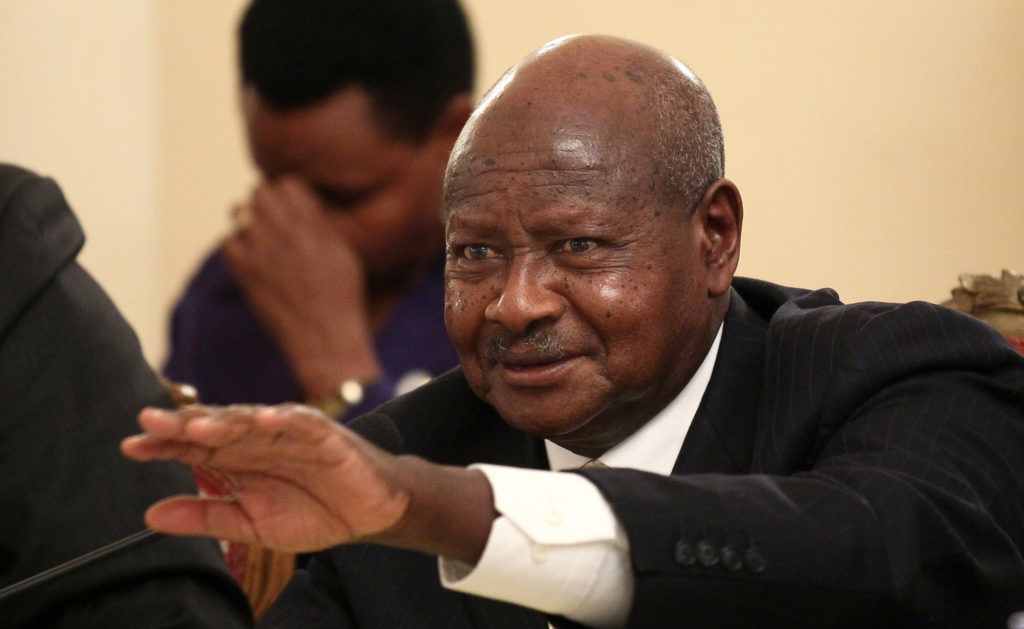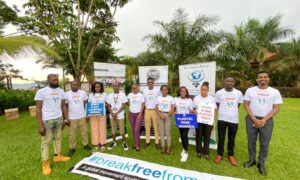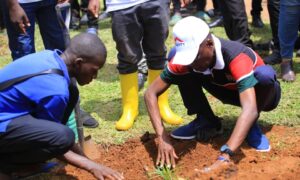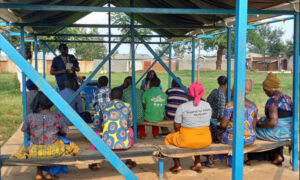
Uganda’s President Yoweri Museveni
Members of the civil society have recommended increased funding to the energy and environment sectors for the 2018/19 financial year, so as to address some of the financing gaps therein.
The energy sector received funding of shs1.8 trillion in 2017/18, which has gone down to shs1.6 trillion in 2018/19. The CSOs suggested that approximately shs6 trillion was required to enable the Ministry of Water and Environment achieve the NDP II and Vision 2040 targets, whose budget is at shs1.2 trillion shillings for 2018/19 FY.
In their presentations to the Natural Resources Committee on Thursday 26 April 2018, members from the Civil Society Budget Advocacy Group and Civil Society Coalition on Oil and Gas cited issues requiring attention alongside potential recommendations.
Siragi Magara, from the Civil Society Coalition on Oil and Gas (CSCO), noted that over reliance on external financing for development as well as low investment in renewable energy were limiting the energy sector’s potential growth.
He added that external funding for the energy sector in 2017/18 increased to shs1.5 trillion from shs884.6 billion in 2016/17, whereas Government contributed only shs292 million. In 2018/19 external funding is expected to be shs1.3 trillion as Government contributes only shs268 million.
“Exciting as these investments may be, the government of Uganda stands a high risk of the projects coming to a halt if external funding is delayed or cut off,” Siragi said.
He suggested project sequencing so as to minimize the external financing burden at a given time, and reduce the risk of increasing the debt burden to infrastructure expenditure.
Julius Mukunda, the Executive Director Civil Society Budget Advocacy Group (CSBAG) raised concerns over limited access to safe water in rural and urban areas as well as continued encroachment on wetlands.
He also noted that Uganda had opened its borders to provide refugee settlement to over a million refugees, who had flooded the country and occupied vast acres of land as provided.
“The refugees have freely accessed trees and forests, cutting them down to get firewood. Little has been done to assess the effect of refugee settlement on the environment,” Mukunda said.
He added that encroachers were deliberately destroying wetlands for settlement or economic activities, adding that Government had not adhered to the 14 July, 2017 presidential directive on restoration of wetlands.
MPs appreciated the recommendations by the civil society organizations, saying they would incorporate them in their report before presenting it on the floor of Parliament.
Rwampara County MP Hon. Charles Ngabirano asked the CSO representatives to suggest ways in which Ugandans would contribute to the resource envelope, so as to reduce the country’s dependence on external financing.
In their reports, the CSOs’ suggested the phasing out of construction of boreholes and to investment in repairing the existing ones countrywide, which MPs said would affect the living conditions of Ugandans.
“Boreholes are a stop gap measure to maintain access to water service especially in rural areas. Is it advisable to phase this out when Government is yet to extend piped water countrywide?” asked Hon. Thomas Tayebwa (NRM, Ruhinda North).
The committee vice chairperson Hon. Keefa Kiwanuka (NRM, Kiboga East) said MPs had suggested an investment in irrigation and setting up of water supply systems so as to reduce reliance on rain for agriculture, but this had not yet been done.
The reports from the civil society organizations suggested the need to secure services of the private sector and promote local content, in a bid to reduce reliance on external funding.




























